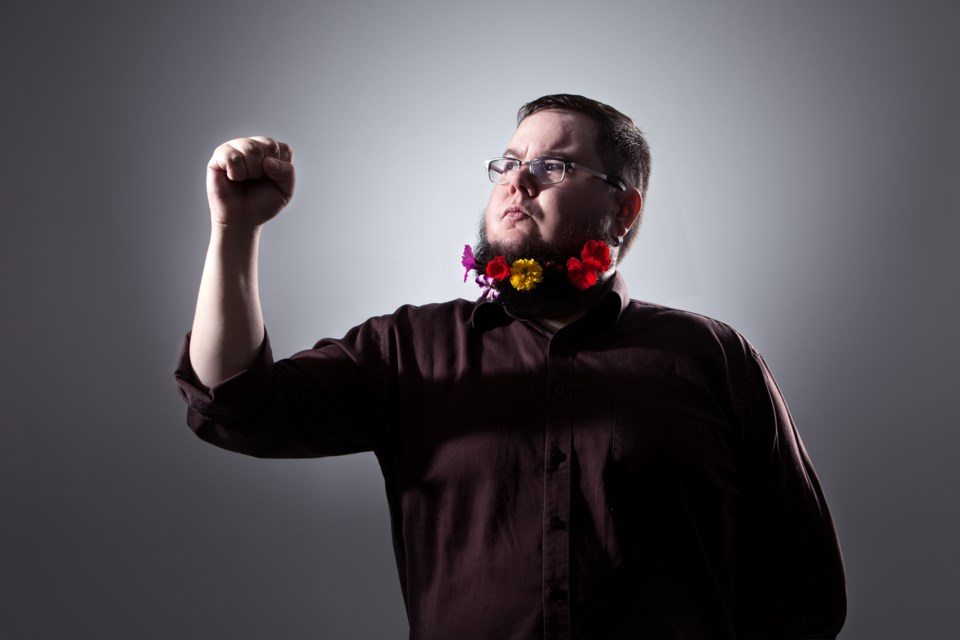Discussion around the topic of bullying is far too often incapable of progressing past it’s surface element of jeers and tears. Whether it be the anecdotes in our story telling, or the reality in our schools – we don’t often engage with the concept of being terrorized at a young age to the degree where we try to understand how it can create baggage the victims end up carrying for the rest of their lives.
Though it’s something that we’ll likely never fully eradicate – a war on bullying seems to have that same intangible quality as a war on terror or a war on Christmas – the swing of society’s discussion about bullying should at least leave one feeling hopeful that we are heading in the right direction.
Part of Vancouver Opera’s fall lineup addresses the subject with the premiere of Stickboy, a collaborative effort featuring the music of composer Neil Weisensel and the prose of spoken-word poet Shane Koyczan. Weisensel is a very active composer with more than a dozen film and television scores to his credit, while Koyczan has become somewhat of a household name after performing his piece, “We Are More” during the 2010 Olympics.
Performing contemporary opera is relatively uncommon and commissioning new works is, by comparison, quite rare. But VO seems to be bucking that trend. Recent productions of John Adams’ Nixon in China, Tan Dun’s Tea: A Mirror Of Soul, and 2010’s commission of Lillian Alling, written by eminent Canadian composer John Estacio, seem to point to an artistic organization looking to develop and promote new works as well as established repertoire.
Koyczan’s novel in verse, Stickboy is the literary work from which VO’s commission derives it’s story.
“It’s my experiences growing up – what I went through.” says Koyczan. “It’s how I started out being tormented at school, crossing that line, and becoming someone who torments others.”
It’s this idea of torment that might be how the work finds its legs on an opera stage. The genre is almost as famous for entire casts killing themselves off as it is for being inhabited by characters that practically combust with agony and conflict.
“There’s a bigness about opera – there’s a grandness – that really accentuates the story,” Koyczan excitedly remarks. “It just makes it that much more huge. Bullying as a topic is quite big, so in a way, this genre is very much what’s needed to show people that this is not a small thing happening in your child’s world. It’s actually one of the most important issues to them.”
To do the subject justice, it seems a strain to imagine it on anything but a downward spiral.
But a census of our fiction reveals that it’s been far more common practice to focus on the tumult of confrontation and for the cameras to turn away once the fur has flown. In a dramatic portrayal of the bully and the victim, there’s a sense of triumph and vindication in the wake of the defeated bully before we slumber into denouement and the credits begin to roll.
“When people talk about bullying, they think it’s this dramatic subject” explains Koyczan. “You can watch movies about it and they’re always characterized as dramas. But for anyone going through it; they’re being terrorized, they’re scared, they’re afraid; the genre is horror”.
Stickboy doesn’t focus on two titular characters gnashing their muscles in an epic schoolyard contest. Conflicts are instead meted out in succession, some of them even seem trivial in isolation, but it is with painful inevitability that they add up to a whole that causes Koyczan’s protagonist to slowly erode as he becomes his enemy’s doppelgänger.
A topical subject like bullying, that happens everywhere to almost everyone, seems like a sure bet to strike a chord with audiences.
“Bullying – that’s something that’s touched everybody who went through the school system,” Weisensel confirms. “My daughter, she was at a school where she was being bullied by another girl. It was right at the time that I got the commission. It was almost too close to home.”
There’s bound to be excitement surrounding Stickboy’s premiere. A string of high profile teen suicides in the news have put the subject of bullying on everybody’s mind. When so many people have the potential to connect with a performance piece, especially one done on an operatic scale, there’s the possibility of something really powerful happening.
Stickboy runs Oct. 23-Nov. 7 at the Vancouver Playhouse. Tickets start at $65; VancouverOpera.ca.
Vancouver Opera 2014/15 season
Carmen: Justly revered for its thrilling drama and its irresistible music, Georges Bizet’s classic opera is so rich in energy and passion, that it lives with audiences forever. Sept. 27–Oct. 5 at the Queen Elizabeth Theatre.
Stickboy: The inner life of a young boy is at the heart of this moving and meaningful new opera by world-renowned spoken-word artist Shane Koyczan and composer Neil Weisensel. Oct. 23–Nov. 7 at the Vancouver Playhouse.
Die Fledermaus: Strauss’s melody-filled music, especially his famous waltzes, is effervescent and intoxicating. Feb. 28–March 8 at the Queen Elizabeth Theatre
Sweeney Todd: Winner of countless awards, Stephen Sondheim’s musical is darkly comical and endlessly entertaining. April 25–May 3 at the Queen Elizabeth Theatre.


